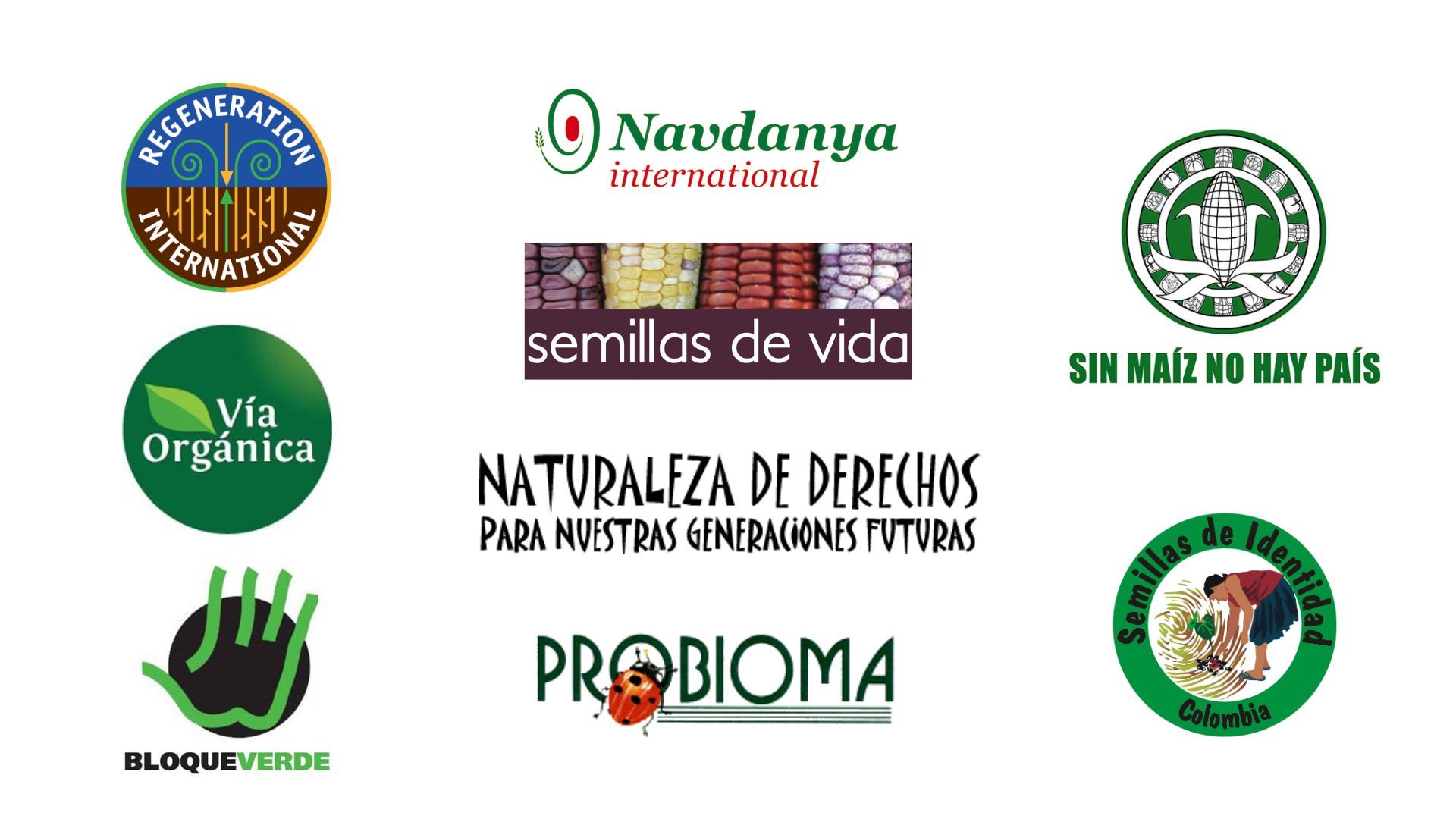The health of the planet and the health of the people are One, maintained through the cycle of food, the cycle of life, the cycle of regeneration. We are part of nature and of its complex living processes. The earth, food and our bodies are interconnected living systems.
Food is Medicine when it is part of the flow of life, from soil, to plants, to our gut. Biodiversity is food, biodiversity is health. Biodiversity grows biodiversity.
At the heart of an ecological future is a sustained continuum between eating and growing. When this delicate equilibrium is disrupted, the repercussions reverberate across all aspects of life.
Industrial food produced using fossil fuels and fossil chemicals is driving the biodiversity on the land and in our gut to extinction, diminishing our cultural and food diversity, creating hunger and chronic diseases.
From the indiscriminate use of chemicals to the proliferation of GMOs and monocultures, the precedence of trade for profit has wreaked havoc on ecological systems, our health and livelihoods. Globalization has accelerated this destructive trend, exporting a model of food production that prioritizes profit over people.
Industrial agriculture and its food systems are fossil fuel and plastic based systems. All over the world, fossil-fuel based agrochemicals, artificial fertilizers and plastics have caused devastation to ecosystems, our health, the health of the soil and to biodiversity. The monocultures necessary for industrial agriculture are promoted for fossil fuel inputs, and are driving loss of biodiversity and genetic diversity, pollution of water and soils, chronic diseases, and global species extinction. The disbalance of the Earth’s natural rhythms and cycles has now caused failing human and planetary health, and climate chaos.
Biodiversity stands as a cornerstone of climate resilience, a vital component at all levels of ecosystems that maintain balance and resilience. Health, too, must embrace diversity—the rich tapestry of life that sustains us. True sovereignty over our well-being can only be attained by regenerating and working in harmony with all the sources of our sustenance, from food, to water, to soil, to biodiversity.
We call for the protection of the Earth on all levels for a more resilient future.
The Rights of Mother Earth are deeply rooted in the very essence of life itself—the seed. The seed embodies the essence of Earth’s sovereignty, representing her inherent right to flourish and evolve according to her own rhythms. Only in a poison-free food system can the seed truly flourish, free from the shackles of chemical contamination and corporate greed.
It is within the practice of ecological small farmers and all other custodians of the Earth, that these rights find their truest expression, through nurturing the soils, biodiversity, cultural diversity and health in all its forms. Returning to the earth is vital to human freedom and survival. We must regenerate our seed, our soils, and hence our future.
On this Earth day, the symptoms of our ailing planet are now all too apparent. We refuse to follow the path to extinction laid out before us, for extinction is not an option—it is an affront to the very essence of life itself. On this Earth day we make the call for humanity to embark on the path of the regeneration of the Earth. The path that reverses the degradation of the earth, our food, our freedom. The path that paves the way for a liveable future, built on the multiple, diverse, ecological realities. The path through which food and agriculture systems in diverse cultures have evolved over thousands of years and can continue to evolve into the future. As we stand at a crossroads of our future, let us reaffirm our commitment to Earth and her inherent rights. Our pledge is one of dedication to the defense of biodiversity, the preservation of health, and the empowerment of custodians of the earth as the custodians of our planet’s future.
This Earth Day we resolve to end a century of oil, petrochemicals, poisons, plastic, and pollution of the soil, water, seeds, our food, and our bodies.
- We renew our commitment to grow and spread poison-free food and farming.
- We commit ourselves to protecting and regenerating our biodiversity, healing the earth, healing the human community, protecting the health of future generations.
- We will reclaim our seeds, our food, our health, our knowledge, which have been stolen from us.
- From the grassroots to public policy, let us amplify the voices of those who regenerate our soils—the true custodians of our Earth. They are the guardians of health. The stewards of biodiversity.And the embodiment of Earth’s and people’s rights.
- We will rebuild solidarity and community and together cultivate hope, in cooperation and partnership with our Earth family.
- Working with the Earth, we will grow in abundance. We will reverse the desertification of the soil, our gut, our minds, our hearts. United as one humanity on one planet, we will grow life, health and wellbeing.
It is from the soil that biodiversity, cultural diversity, health and climate resilience all come forth. Protecting the earth is protecting our life, our future, our freedom.
We are members of the Earth Community in which all species, peoples, cultures have intrinsic worth and rights to sustenance.

